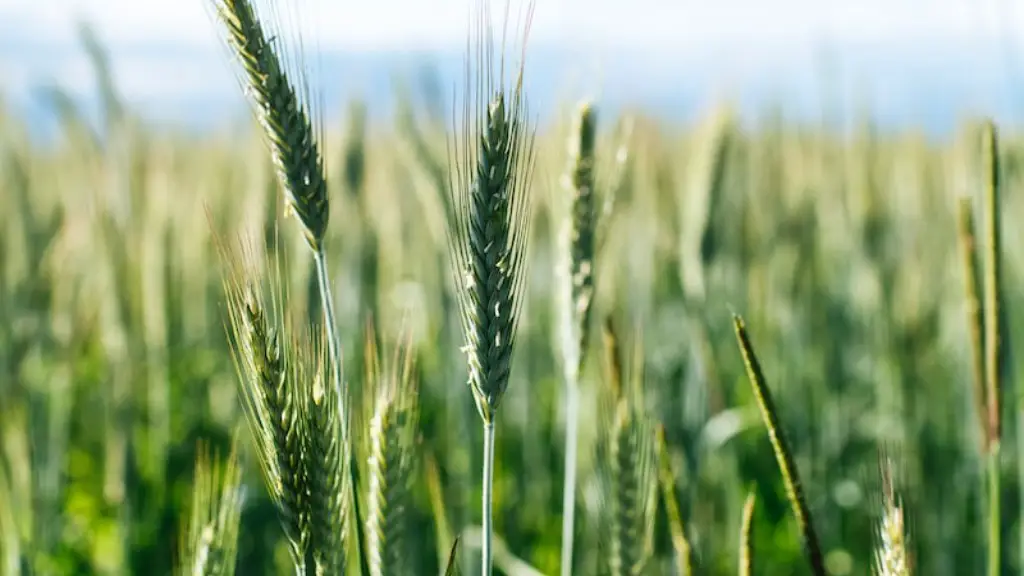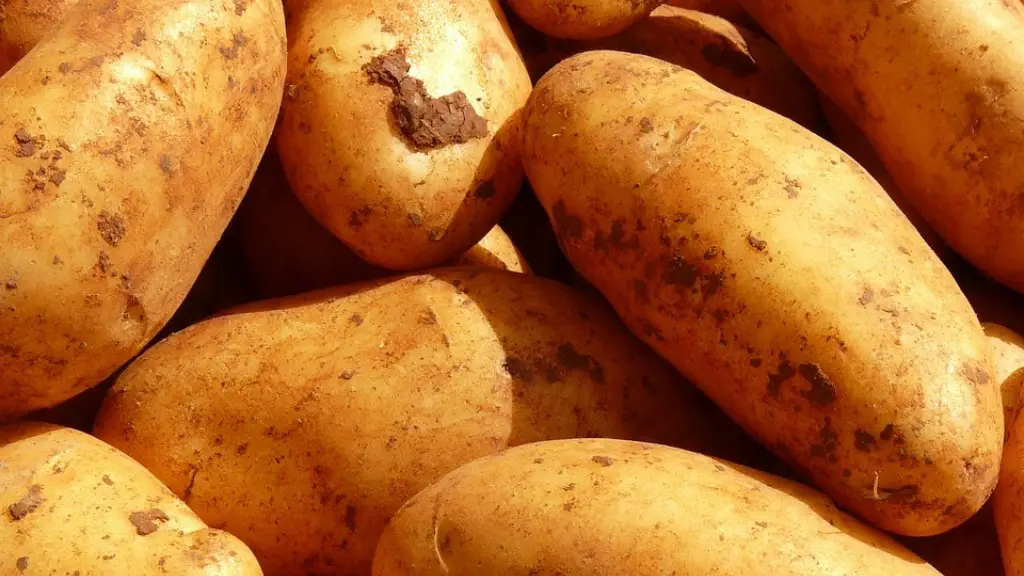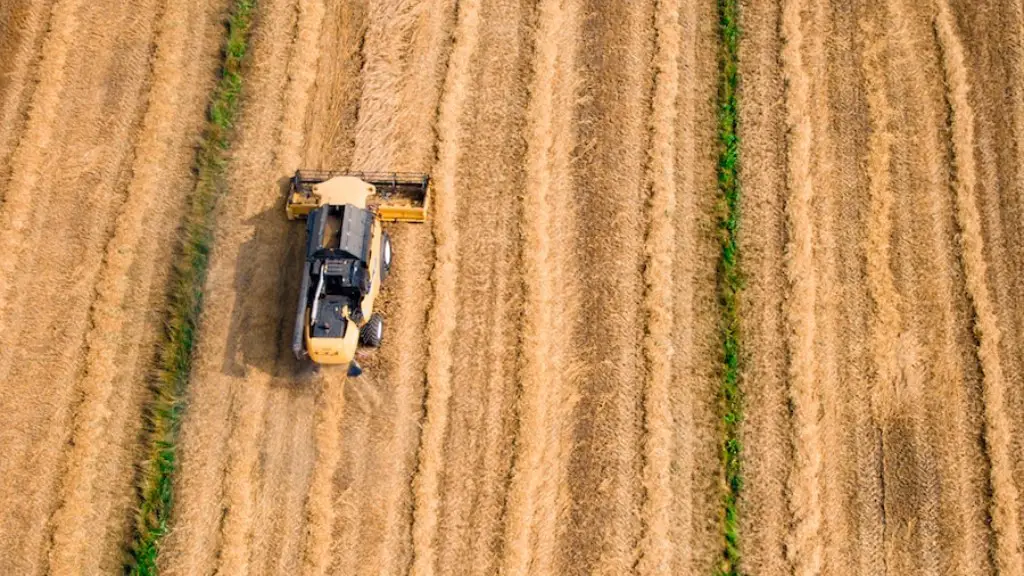The use of limestone in agriculture has many benefits. It can be used as a fertilizer, a soil conditioner, or a material for pathways. It can also improve the appearance of a farming property.
Limestone is used in agriculture to help regulate soil pH levels. By doing so, it creates an environment that is more hospitable for plants and grasses. Additionally, the calcium in limestone helps to promote healthy plant growth.
Why is limestone important to agriculture?
Dolomitic limestone is a type of limestone that contains magnesium. This is important for soils that are deficient in this essential plant nutrient. If a soil test indicates low magnesium, dolomitic limestone can be used to correct both the nutrient deficiency and pH. The value of limestone is in its ability to neutralize soil acidity.
Limestone is a type of sedimentary rock that is made up of calcium carbonate. When limestone is added to soil, it can help to raise the pH level to a more neutral range. This is beneficial for plants because it can help to prevent nutrient deficiencies. If the pH level is too acidic or too alkaline, it can make it difficult for plants to absorb nutrients from the soil. Limestone can help to create a more balanced pH level, which is essential for healthy plant growth.
Why do farmers add limestone to soil
Lime is a material that can be used to improve crop yield and the root system of plants and grass where soils are acidic. It does this by making the soil more basic, allowing the plants to absorb more nutrients. Lime is not a fertilizer but can be used in combination with fertilizers to improve plant growth.
Limestone is a sedimentary rock, which means it is formed from the remains of small marine creatures that have died and fallen to the bottom of the ocean. Over time, these remains are compressed and form a solid rock.
Limestone is a very versatile rock and has a number of different uses. It is used in the production of cement, which is essential for the construction industry. It is also used in the production of steel and glass. In addition, limestone is used in water treatment and purification plants.
Is limestone used as a fertilizer?
Agricultural lime, also called aglime, agricultural limestone, garden lime or liming, is a soil additive made from pulverized limestone or chalk. The main active component is calcium carbonate. Additional chemicals vary depending on the source material and may include magnesium carbonate, calcium oxide, calcium hydroxide, and calcium sulfate.
Ag lime is used to improve the soil structure and increase the pH level of acidic soils. The main benefits of using ag lime are to improve crop yields and to reduce soil compaction. Farmers often underuse ag lime because it is a slow-acting material and it can take several years to see the full benefits.
Lime is a versatile tool that can be used to improve soil fertility and encourage biodiversity in degraded forest areas. The calcium and magnesium in lime neutralize soil acidity, which can improve the activity of soil bacteria. This can lead to increased soil fertility and a more diverse range of plant and animal life.
What plants grow well in limestone soil?
If you’re looking for some flowers to brighten up your garden, and you have alkaline soil, you’re in luck! There are plenty of flowers that do well in alkaline soil, including anchusa, borage, California poppies, lavender, Lily of the Valley, phacelia, polemoniums, and trifolium (clovers). So go ahead and add some color to your garden!
Lime is a popular way to improve yields for farmers and the appearance of lawns for homeowners and landscapers. However, too much lime can spoil the soil, so it’s important to be careful when applying it.
What are the benefits of agricultural lime
Agricultural lime is applied to the soil to increase the pH, reduce the solubility of the toxic elements and increase availability of nutrients to plant roots. It is a calcium-containing product processed from limestone, gypsum or dolomite.
Most limestone forms in shallow, calm, warm marine waters. The majority of grains in limestone are skeletal fragments of marine organisms such as coral or foraminifera. Other carbonate grains that make up limestones are ooids, peloids, intraclasts, and extraclasts.
Why is limestone good for animals?
Ground limestone is a very common and economical source of calcium for animals. It contains one of the highest levels of elemental calcium at 40%. A deficiency or imbalance in calcium can cause poor growth rates, poor bone development, reduced milk output and more obviously milk fever.
Most limestone is used as a construction material. It is used as a raw material in cement industries, as a building material, and to purify iron in blast furnaces. It is also used in the manufacture of glass and of cement.
Does limestone help soil
Adding limestone to your soil can help increase the soil pH and make nutrients more available to plants. Limestone is a natural substance that can be found in many garden products, such as fertilizer or topsoil. You can also find it at your local garden center.
Lime can help to improve soil quality in a number of ways. It can improve grass availability by raising the soil pH, help condition the soil and improve nutrient availability. All of these factors can lead to increased grass production. In addition, limed soils tend to release more nitrogen from the soil organic matter, which can improve NUE.
Does limestone keep weeds away?
Weed and moss growth can be a problem in any lawn or garden. While limestone will not help to kill existing weeds or moss, it can potentially lower your chances of future growth. This is because moss usually prefers acidic (lower pH) soil. By adding limestone to your lawn or garden, you can create a less favorable environment for moss and potentially prevent moss from becoming a problem in the future.
Lime is an important part of maintaining a healthy lawn. It helps to keep the pH of the soil within the optimal range for grasses to thrive. By doing this, it allows more nutrients from lawn fertilizer to be available to the grass, leading to a fuller, thicker lawn.
Warp Up
Limestone is used in agriculture as a soil amendment. It is also used in the production of Portland cement and as a building stone.
Limestone is used in agriculture to neutralize soil acidity, providing a positive environment for crop growth. It is a common soil amendment and fertilizer.





